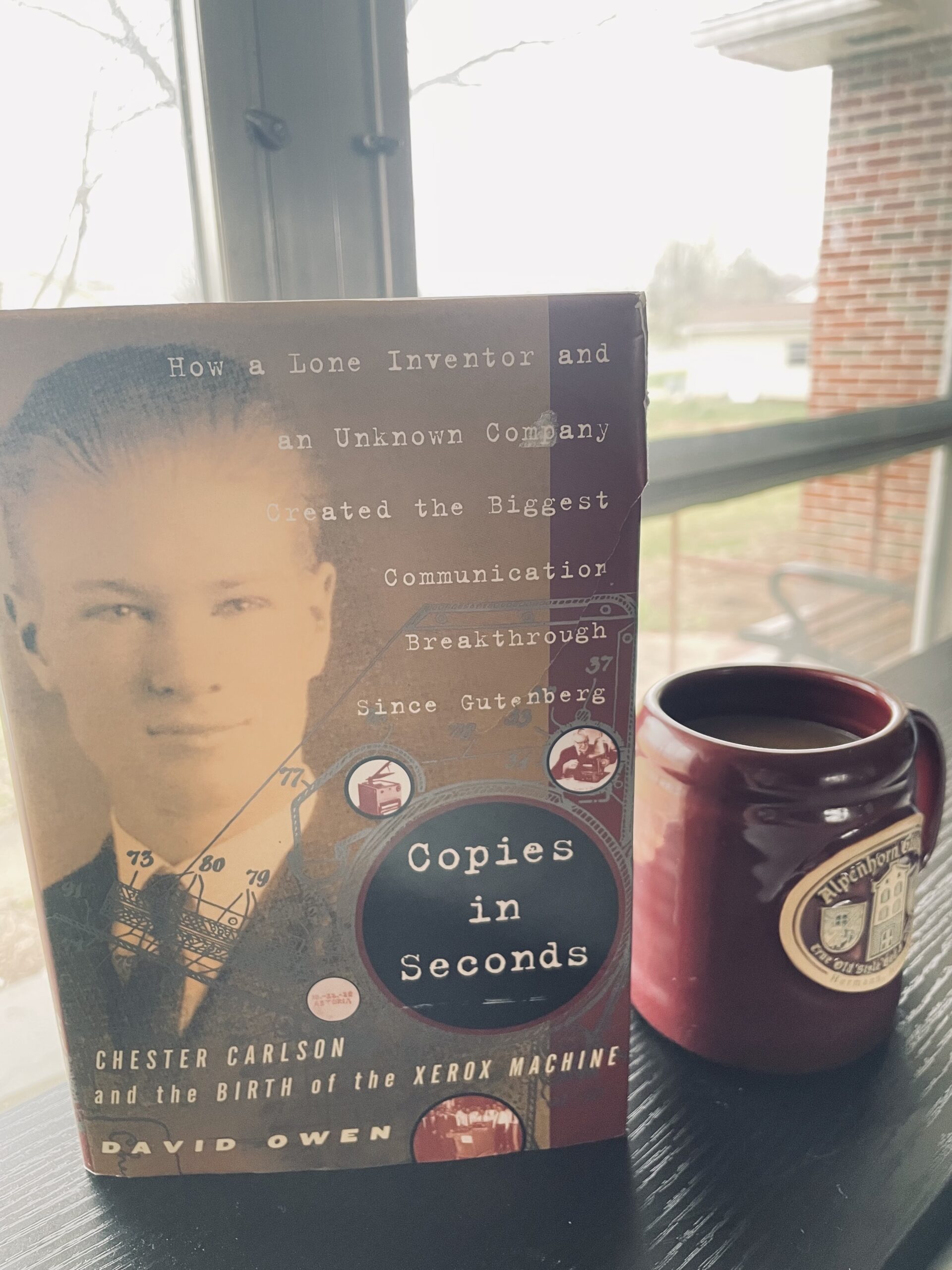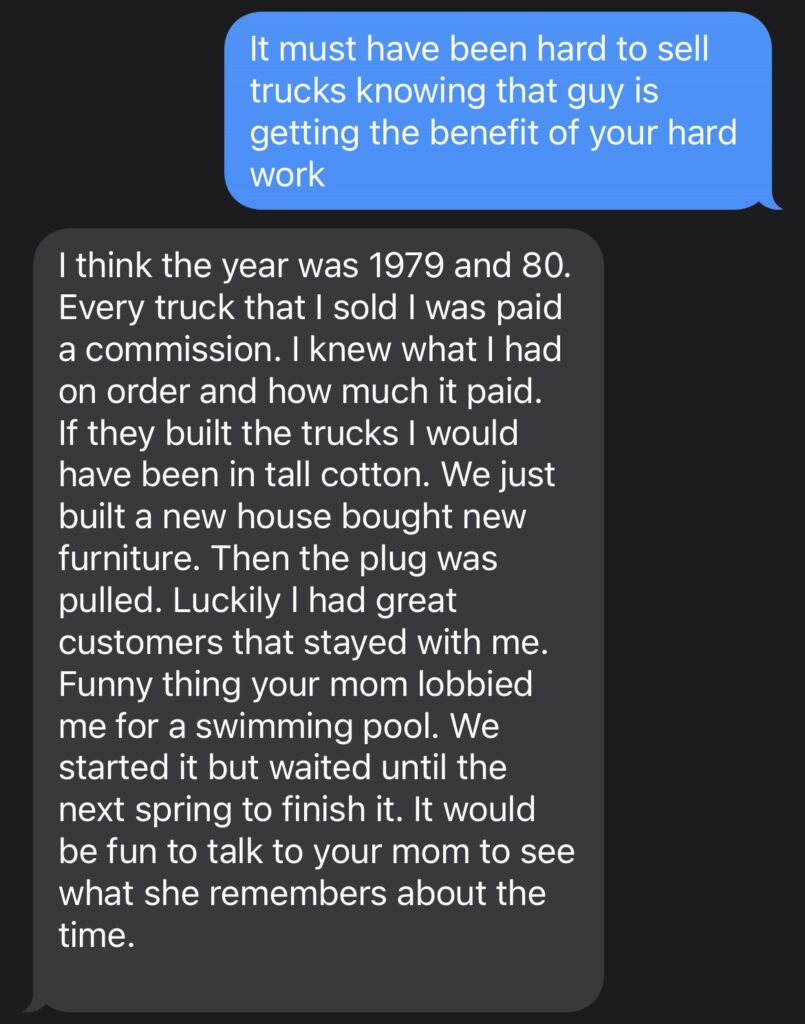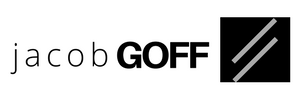
I have a shelf in my basement that I am trying to work through, book by book. I have been collecting books for years, and I read what fancies me at the time. I realized a couple of years ago that some books I accumulate and then never get that random urge to pour through. To force myself to read some of the books that don’t catch my eye, I spent a few days organizing a bookshelf of the books that keep slipping through the cracks. I am now just methodically going down the bookshelf and reading the next book on the shelf, to force myself to complete these books.
I love reading, but I have to really combat my ADHD and focus to get through a book. This book had caught my eye when I purchased it years ago, mainly because I grew up fascinated with invention but also I had a special place in my heart for copy machines in particular. I had no clue what I was getting myself into with this book. It didn’t pop out to me though and had to be put on my book report shelf because otherwise I never would have just randomly pounded through this book. It is a little older, and you can sort of tell by the cover that it is really in the weeds with its topic. (The cover, however, is really well-designed!) You don’t see a ton of overlap with this company and other companies during the eras discussed. The personal computer revolution (which Xerox did actually attempt to participate in) was a much later era, and so my knowledge base of the technological world that encapsulates this invention is really minimal. It’s an obscure topic, sort of related to photography/sort of related to office technology like typewriters and carbon paper. In fact is one of the core points of this book — this is an obscure invention that might not have happened had Chester Carlson not just chased a rabbit way down a hole despite smart people all around him telling him he’s an idiot.
I am sure every era is weird to read a book about technology, because things just change so fast in that realm. This book was written around 2004. It was when I was in college, from 2007-2009, that I remember professors having to reduce the amount of Xerox copies that they made. Some professors had clearly built their careers copying papers, it was a critical part of their pedagogy. I remember it would be the beginning of the semester and the professors would just email out the papers they wanted us to have. A month or two into the semester, the professor would realize that nobody had those papers handy to reference during class (only probably 10 percent of any class would bust out a laptop) and so they would just return to making tons of copies for their students. Paper, it seems like, is barely used in schools these days. They give them a laptop and just expect they will figure it all out.
The first 200 pages of this book are like reading a science paper. There are glimpses of family struggles and entrepreneurial strategem, but so much is the nitty gritty of figuring out how to use static electricity, and volts instead of amps, to capture an image and print it on plain paper. For much of this, I was kind of glazing over and wondering why this mattered, but then author David Owen’s point started to make sense to me: this is what invention is. Absolute engagement with the tiniest frustrations and obstructions to accomplishing a simple goal: copy an image on plain paper — in seconds. It took me a while to read through this part, and if I had been taking better notes while reading, I feel like I could distill a lot more out of this beyond just: this is the scientific method, trial and error, failure and success, over and over while running out of money, holding onto the ones who support you, and chasing the dragon. The final third of the book, when the thing started working, is when Carlson’s character, and a lot of the life and business lessons of this process started to make sense.
<<Living at the YMCA and working overtime did noot make Haloid Xerox’s employees unhappy, however: trying to build a functioning office copier was the most engaging group activity that some of the men had been involved in since the end of the war. Still, at one point Wilson became worried that the 914 development program was overstressing his workers, and he hired a psychological-testing firm to assess the company’s mental health. “They came in and gave a questionnaire to all the employees,” Frederick Schwertz recalled later, “but then when they examined their results they couldn’t believe them.” The contentment ratings were so high that the testers thought they must have garbled the data, and they distributed a second set of questionnaires. But the new results came back the same.>> (229)
I once heard a tech pundit explaining that the companies to watch out for are not the super well-funded ones where the employees are getting free meals and soy lattes when they feel like it, but rather the scrappy guys who are willing to live like animals, sleeping in locker rooms or under desks so they can build something amazing. We are talking about the middle of the 20th century and these guys were not just inventing the copier, but the silicon valley workflow.
The final pages of the book discuss how Xerox fumbled away any of the advantages that they could have had in chasing adjacent technological innovations because they chose to hire status guys. Many of the executives they hired had come from the auto manufacturing industry, and these guys were particularly antagonistic towards innovation. This was moving into the 70s. One of the guys who particularly ran the company into the ground was a man named Archie McCardell. They mentioned that McCardell then went on to lead International-Harvester as CEO and led that company into its worst years. My grandpa was a salesman for International, and so I texted him and asked if he remembered these years:


It took me a while to plod through this book, but I am going to give it 4 out of 5 stars. I really think it is worth reading about the inventive process and how corporations age out of innovation and into chasing safety. I am grateful for this book that it opened up a new conversation with my grandpa.
Notes:
233 (trip to chattanooga) – 234 “we were fired up”
lease out dont sell 236-237
242 – service men had status (cars) over salesmen
244 – people will be forgiving of the underdog — especially an underdog who undertakes such an innovative task
248 -picasso gimmick
260 – to die a poor man
262 – on the side of the rabbits
270 – the inventor’s prayer
280 – “if youve got something unique, you dont take a poll”
